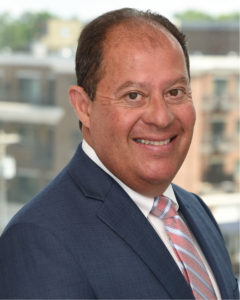 By Stephen L. Ferraro, CPA/ABV/CFF, MAFF, CVA, CBEC, CEPA
By Stephen L. Ferraro, CPA/ABV/CFF, MAFF, CVA, CBEC, CEPA
During the course of your work, you may have called upon a Forensic CPA for assistance. It might have been for the assessment of commercial damages or to perform a fraud or financial investigation. You may have hired one to calculate future lost earnings related to personal injury or to prepare a business valuation for a shareholder dispute or estate matter. Perhaps you engaged a forensic CPA to determine financial motive in an arson case. As with most things in life, some attorney experiences with CPA Experts have probably been good and some…not so good. So how can you get the most out of your Forensic CPA relationships?
1. Call Early
One of the best ways to compromise the effectiveness of any expert is by delaying their involvement in the process. Some attorneys are hesitant to call in the hopes of controlling the cost of outside experts. Others only think of CPAs as expert witnesses at trial and, consequently, delay their involvement. There are also those who mistakenly think if they gather some financial information on their own it will make the process smoother. Whatever the reason, most delays in making that phone call will result in weakening the expert’s value to the process.
The initial phone call does not have to result in the start of a full-scale engagement. In fact, it may only be for assurance purposes, since sometimes there is no need for further involvement on the part of the expert. On the other hand, many times the immediate involvement by the Forensic CPA is required to effectively develop the document request, follow-up interrogatories, or important deposition questions. Having expert financial assistance to develop a well drawn document request and insightful deposition questions is the first step toward negotiation and, ultimately, a reasonable settlement. The bottom line is that it does not hurt and, in fact, can only help the situation by calling the Forensic CPA early in the process.
2. Communicate Throughout the Process
Advanced and regular communication is required to properly manage the work, and ultimately the bill, of the Forensic CPA. The attorney should be very specific in their instructions right from the start. This will serve to avoid unnecessary or duplicate work, as well as the omission of important procedures, on the part of the expert.
The attorney should discuss the overall strategy with the expert. Often an attorney may discuss what needs to be done, but omit the reason. CPAs dedicated to forensic accounting and expert witness services have a broad background and a great deal of experience in dealing with these types of financial matters. If the attorney discusses strategy with the expert, they may be able to suggest alternatives that the attorney had not even considered.
3. Determine Relevant Experience
Engaging a CPA with forensic accounting and litigation experience should be a must. Litigation support and expert testimony are very different from more traditional accounting, which typically involves tax return preparation and auditing for a client with whom they have had a cooperative relationship for many years. A Forensic CPA has to be much more creative and adaptable. They are often faced with many adversarial relationships that a more traditional CPA may be unprepared to deal with. These situations require the ability to be forthright, yet tactful. A Forensic CPA must also have a broad business background and be perceptive to differing methodologies, techniques and record keeping options. They must be able to delve into the situation in spite of disorganized or incomplete records.
Engaging an experienced CPA who has no expertise in forensic accounting and litigation support could result in the attorney paying for the CPA to get the proper training or experience. Even a very talented CPA who has no previous forensic accounting experience will have to spend some time getting up to speed in forensic techniques and methods and the litigation environment. The basic point is that hiring a CPA inexperienced in forensic accounting and litigation could easily produce substandard results, mishandling of the case, or unnecessarily high billings.
4. Evaluate Supporting Forensic Credentials
The CPA expert’s credentials are an important part of the decision making process. The attorney should look for an expert with relevant credentials governed by the American institute of Public Accountants (AICPA), the National Association of Certified Valuation Analysts (NACVA) and other relevant organizations. Some of the more pertinent credentials are the following: Master Analyst in Financial Forensics (MAFF), Certified Fraud Examiner (CFE), Certified Business Appraiser (CBA), Accredited in Business Valuation (ABV), Certified in Financial Forensics (CFF) and Certified Valuation Analyst (CVA). The CPA expert should also be an active participant in the organizations that monitor their relevant designations and continuing educational requirements.
5. Assess Expected Costs vs. Potential Benefits
During the initial telephone call the attorney should begin to evaluate the extent of involvement warranted by the Forensic CPA. If the issue is relatively small, the attorney may be able to proceed after only a short conversation with the expert. In this type of situation extensive work would probably be overkill and not considered cost effective. On the other hand, in more complex situations, the attorney may want more extensive involvement on the part of the expert to help develop effective document requests, interrogatories, deposition questions, and perhaps ultimately, expert testimony.
6. Review Previous Expert Testimony
Attorneys should look into previous cases to see the opinions and reports the CPA Expert has issued in the past for deposition or trial. Counsel should also find out whether an expert has been subject to Daubert challenges and/or has had their opinion excluded at trial. This is a critical part of the selection process.
7. Control the Costs Where Possible
One way to keep billings under control is to remember that attorneys should not always request a formal detailed written report. The CPA’s financial analysis can be made in financial schedules. A shorter, less formal report can serve well in many instances for effective negotiation and settlement proceedings. In many situations the attorney could make the most effective use of the expert’s time by hiring them for a meeting or teleconference to help explain the analysis and reach a mutually agreeable settlement. Formal detailed reports are more appropriate for cases definitely going to trial and with complicated fact patterns. If appeal is a factor, a formal detailed report will undoubtedly become a welcomed part of the attorney’s records.
Summary
In summary, if used effectively, a Forensic CPA can be an invaluable resource for an attorney in litigation matters. The relationship should begin early and there should be good ongoing communication between the expert and the attorney regarding the work to be performed and the related strategy. The attorney should weigh the cost of the CPA Expert against the benefit they hope to obtain and direct the expert work accordingly.

Comments are closed.